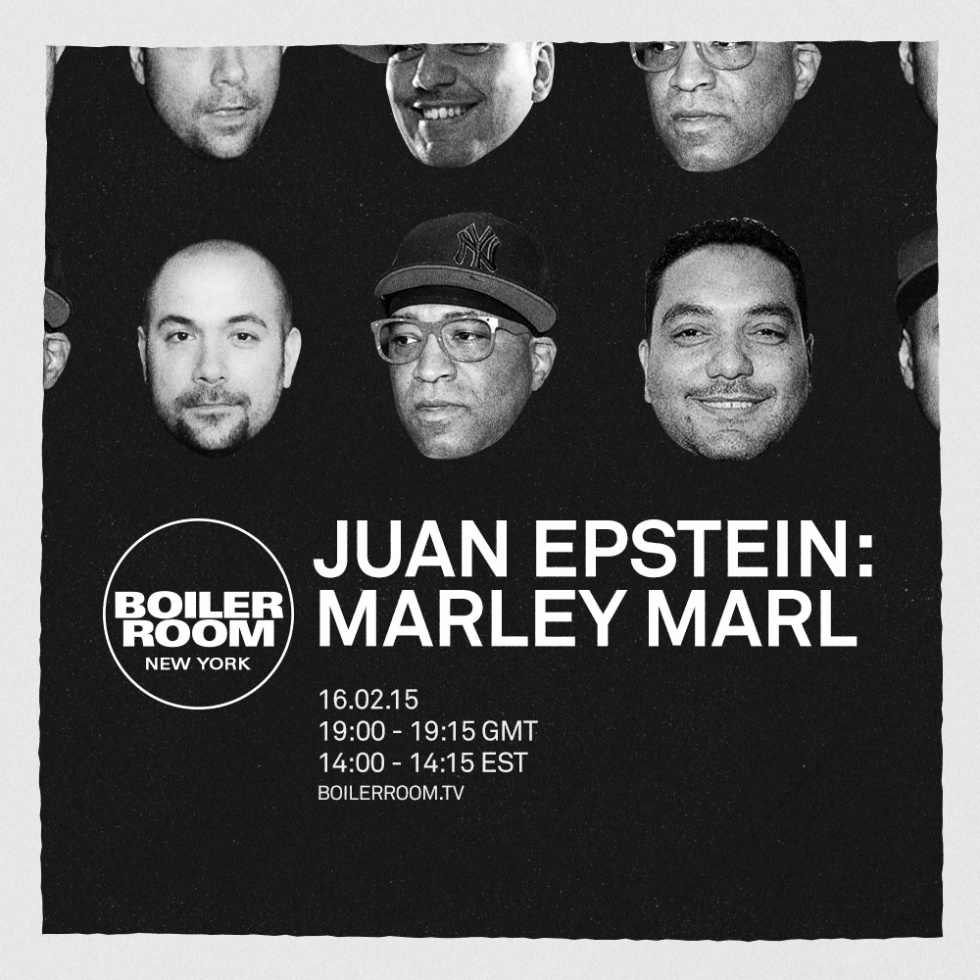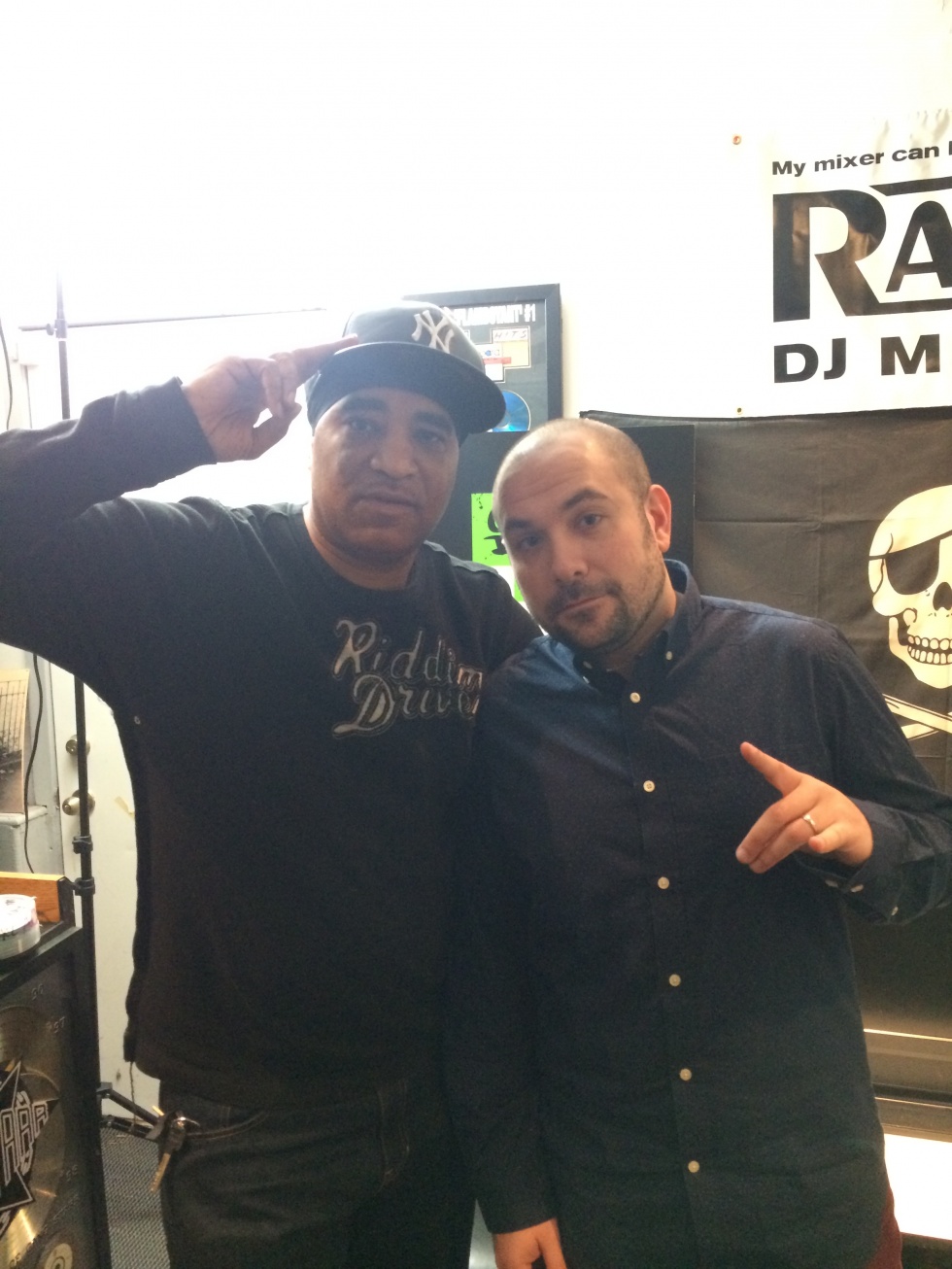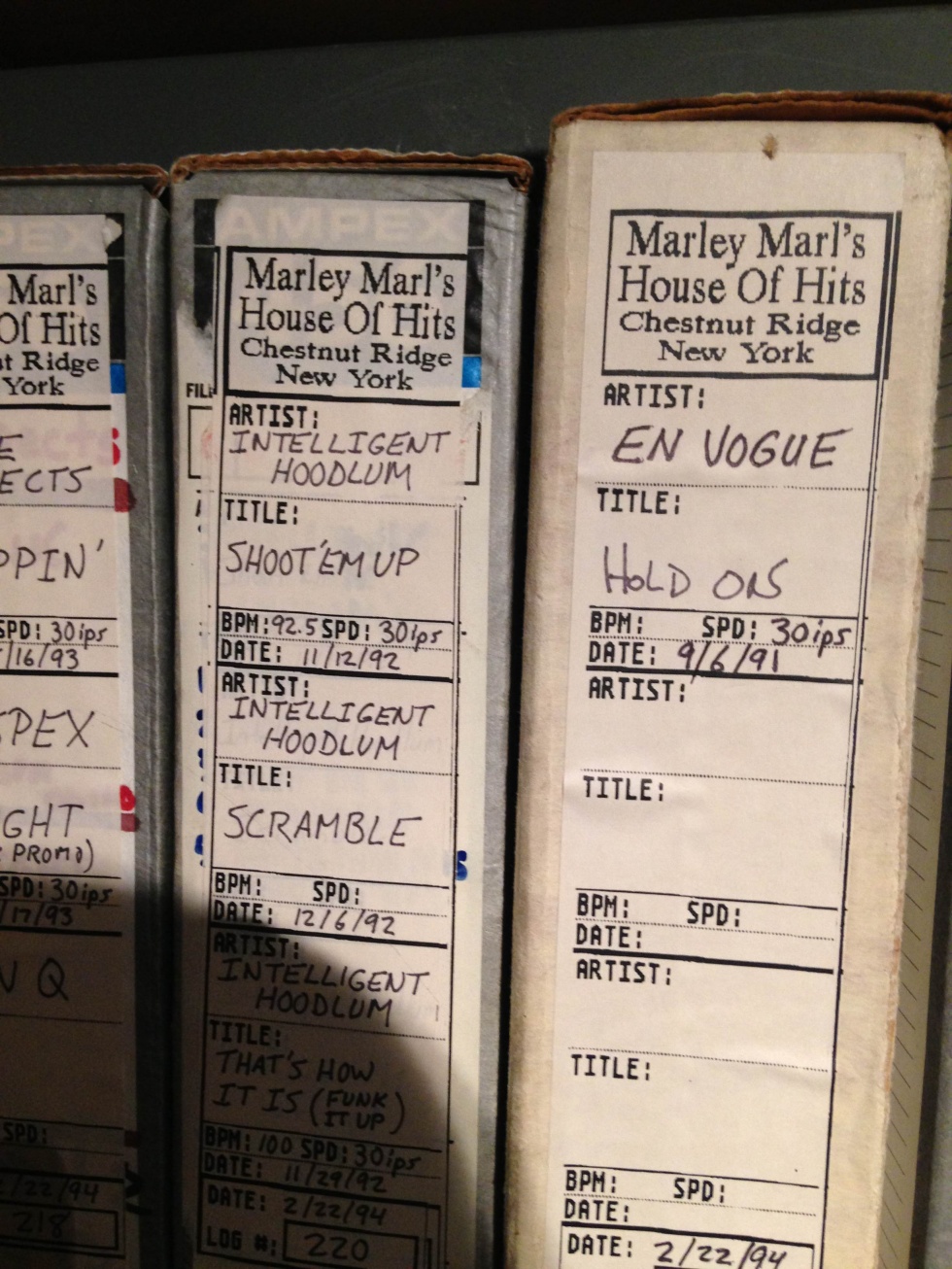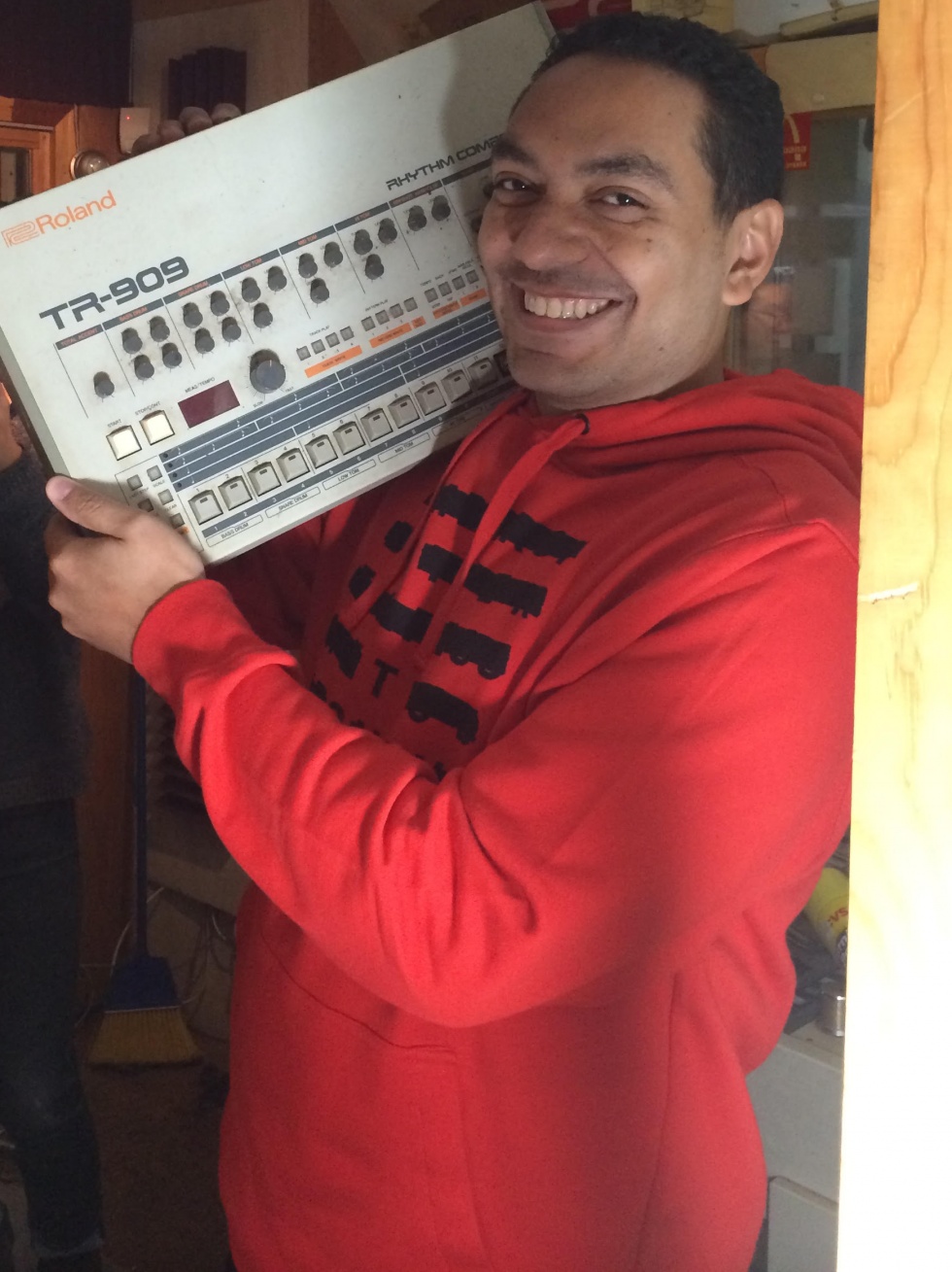 Cipha Sounds and Peter Rosenberg are both encyclopaedic vats of hip hop knowledge in their own rights. And when they coalesce, the pair’s sturdy grasp of facts and little-known anecdotes are an even more enviable force. Their podcast, Juan Epstein – named after the Puerto Rican and Jewish characters from the popular ‘70s sitcom Welcome Back, Kotter – started out in late 2007 as a public forum for the twosome’s devotion to hip hop and comedy (as well as a venting space for their personal lives). As Rosenberg aptly concluded in the first post on his website, “It’s simply Cipha and I bullshitting on a variety of topics.”
Cipha Sounds and Peter Rosenberg are both encyclopaedic vats of hip hop knowledge in their own rights. And when they coalesce, the pair’s sturdy grasp of facts and little-known anecdotes are an even more enviable force. Their podcast, Juan Epstein – named after the Puerto Rican and Jewish characters from the popular ‘70s sitcom Welcome Back, Kotter – started out in late 2007 as a public forum for the twosome’s devotion to hip hop and comedy (as well as a venting space for their personal lives). As Rosenberg aptly concluded in the first post on his website, “It’s simply Cipha and I bullshitting on a variety of topics.”
Eventually, it would grow in stature to become one of the premier info kiosks for hip-hop heads, featuring in-depth, off the cuff interviews with everyone from Mannie Fresh to Quincy Jones through to Eminem and Wale. Even non-rap personalities have had their Juan Ep fix, with the likes of Chris Rock and Keenan Ivory Wayans waxing lyrical about the nerdiest nooks and crannies of the culture.
In January, Cipha Sounds – who held the Hot 97 evening commute show, Afternoon Drive – announced that he was breaking up (or, as he put it, “changing my relationship status from ‘It’s complicated’ to ‘Single'”). Now, Ciph is biding his time by working with a tech company and pitching television projects from NY.
Head and shoulders above any other hip-hop based podcast, Juan Epstein has securely etched itself into the genre’s tapestry. The grind refuses to slow, however and with an episode featuring Marley Marl on its way, we’re preparing to stream the whole thing. Just before that read on as the pair mull over the successes of the longest running podcast in rap land.
BOILER ROOM: In your mind, what are the biggest advantages about the podcast over being in a radio setting?
PETER ROSENBERG: Oh man. So many advantages. The main ones are that you can focus on whatever subject you want without having to think about the lowest common denominator. Secondly, you get to spend as long as you want on any given subject. That is not an option on commercial radio.
Out of all the guests that you’ve you had through your doors, which person has surprised you with their grasp of trivial, nerdy knowledge?
CIPHA SOUNDS: You know who was really good? Large Professor from Main Source. He was talking a lot about when he first met Nas and I forget the guy who he used to produce for – I think it was a guy called Paul C, who did a lot of Queens, Kool G Rap records. That was some real nerdy shit.
PR: Jermaine Dupri. I had no idea just how big of a true hip hop head JD was. I guess it should not be surprising at all but it was for some reason it was.
Cipha, when I listen back to Juan Epstein episodes, it seemed like it was you that had most of the story-based, nerdy knowledge?
CS: Well, the difference is that I lived in New York and had worked with Funkmaster Flex, Red Alert, DJ Chuck Chillout so I just love hearing about music and gaining trivial knowledge. That was always my thing. I would just absorb all of that shit. With Rosenberg, he didn’t live in it until he moved to New York so he was definitely more book smart with hip hop. He would know dates and years that albums came out and what was on the b-side, stuff like that. That’s why Juan Epstein worked, because we would compliment each other with the nerdy stuff that we know. I suck at dates, I don’t even remember people’s birthdays but I can remember a story about DMX’s wife yelling at him or something like that.
Can you remember when the interviews actually became a regular part of the series? I seem to remember the first few weren’t necessarily based around guests, instead focusing on the interaction between yourselves.
CS: The joke is that I’ve never heard a Juan Epstein podcast. Rosenberg listens to them, I think he just listens to them because he likes to hear himself talk. I don’t even remember when it even became the podcast. The reason why it started is so that me and him could practice just talking together, becuase we were about to get the radio show [on Hot 97]. I don’t even remember when it became interviews. I hope people don’t get mad at me, I definitely love doing Juan Ep but I can’t remember.
As you pointed out, throughout the history of Juan Ep there’s always been a healthy focus on just gaining knowledge. I’m thinking back to the episode with Pharrell in particular – where he really pays homage to the influences of Pete Rock, and Showbiz (of Showbiz & A.G.).
CS: The thing with Juan Ep – the perfect example of that being Kanye – is that we started doing this for one particular reason and then it turned into something else because we really love hip hop and we really loved hearing the detailed stories. I really wanted to know who that Jamaican guy was on all those Death Row Records. Shit like that. So we used the show to satisfy our own questions.
Nowadays there are all these podcasts that have got really big and they try to get the drama of the music. We never wanted the drama, or the ‘oh, I gotcha’ questions. We wanted hip hop. So Kanye came in, even Snoop came in right after Nate Dogg passed away and at the time everyone was asking him about his friend passing away. We were asking him the fun stories about Nate Dogg as well as the good stuff we wanted to know. You could see him just open up and not just have to answer the same old questions. It’s the same way that Kanye came in when he had all this fashion talk going on and Kim was with him. I’m sure he was tired of people talking about Kim Kardashian while he’s doing an interview. We were just asking him about who his favourite drum programmer was, whether it was DJ Premier or J Dilla. You could see the release in his face when we were actually asking about the art of hip hop, things like ‘why did you put that sample here, it’s so out of place but it’s dope’.
After that you see them become so comfortable and they just open up. Almost every episode has someone dragging the interviewee out into something else. We talk the real and want to know the art, not just what’s popping at that particular time.
“We never wanted the drama, or the ‘oh, I gotcha’ questions. We wanted hip hop.”
On a quick side note. For Hot 97, I imagine there’s always this constant battle between keeping things “under-the-nail, holy, sacred and pure, unmixed, undiluted, un-tampered-with, real hip-hop shit” (as Busta said), and obeying on-air radio rules. How do you go about treading that middle ground?
PR: I’m just true to myself. I love love love underground hip hop and I also love well done mainstream party hip hop! As long as you are completely true to yourself — it’s easy to walk the line. I just love getting to see people do really well and live an incredible life because of this culture. There are people living tremendous lives who you might never have predicted would do so before.
CS: I have this topic fresh on my mind, but it’s just the evolution of the game. Hip hop is huge now, it’s not an underground find any more. Once that happens, there’s nothing stopping it. Corporate takeover happens. That’s great because the internet works for that and if you still want to be underground, you can choose to be. I just don’t understand why people get so upset at radio and get all like ‘ahh, you changed everything’ Everything changes, it’s a part of life. Nothing will stay the same, people grow up, there are different mediums to take in music now, you’ve just got to roll with it. It’s like coming out of vinyl and into Serato was a very hard change for me, but I had to tell myself that technology is not going to change back. It’s either get on board or get left behind.
That’s a positive way of looking at things.
CS: I try to live a positive lifestyle. If you look back at certain Juan Ep episodes, there are times when I’ve had emotional breakdowns. That’s another thing about Juan Epstein, all the guests and knowledge we distribute – there are times when me and Rosenberg have had full on fights. It’s really personal and emotional. Fans might just tune in one day and there’s no guest, it’s just about me having trouble with food. At that moment, they may see it as dull but a couple of episodes later we might make a joke about that food episode and you laugh. We’re connected to the people.
I think your greatest tool is that candidness. With Juan Ep as such a major part of your lives, how has the show affected your lifestyle on the whole?
CS: It’s like the movie Fight Club. People will come up to me, pat me on the shoulder and be like ‘yo, Juan Ep son’. They’re like underground soldiers that just live in society. If I go to a meeting or an interview, someone in the mail room or even the executive will tap me. And they’ll always just whisper it! I’m always like ‘why are they whispering?’ I think people want to keep it to themselves, but let the world know! Questlove had an episode really recently where he brought Chris Rock down. He was like ‘yo, I really fuck with Juan Epstein because it’s the best podcast for the champs.’ He asked if he could bring Chris Rock down as if we were going to be like ‘well, we don’t know if Chris Rock fits our calibre’.
PR: Snoop telling us the behind the scenes of arranging a meeting between 2-pac and Nas in central park. I loved when Ghostface told us why he wears so many layers of clothing. And I’ll never forget Pete Rock telling me that Biggie was in the basement with him when he produced the beat for “In the Flesh”.
“Juan Ep is not there for that big scoop, but the funny thing is that we will learn crazy shit.”
There must be numerous occasions when people ask to keep things off the record, which as a result means you guys have even more tidbits of unknown knowledge.
CS: No, not really. A couple of times someone might have opened up a bit too much but we always edit anything out that people don’t want in there. Juan Ep is not there for that big scoop, but the funny thing is that we will learn crazy shit. We’re not into sex scandals, we’re just into those interesting stories.
Have you ever thought about getting UK-based hip hop personalities on to the show?
CS: I love that stuff, but it just won’t catch on here. I love all kinds of stuff, even going back to garage, underground hip hop and grime. I’ve tried so many times. Skepta has been over here a couple of times and I had Giggs over here for a bunch of interviews. Getting them some press is all good, but getting them to the streets is what’s hard. It’s hard over here, you can’t just come in overnight.
The show called the Hot 97 studios its home for so long. Cipha, have you had to move your base following the aftermath of you leaving the station?
CS: I’m actually partnering with a technology company at the moment and the guys I’m working with have a studio that I’ve been working out of. Me and Rosenberg are trying to start up a Juan Epstein network. We just want to work with other podcasts that we love and that fit the Juan Epstein philosophy. We understand that even though we don’t do the outlandish, pop shit, it’s still a valuable asset. I wouldn’t want to do it because I’d be faking it, but if we found someone that was really good at it we would want to share that with the podcast world.
I’m also interested to hear where you think the future lies for radio broadcasting within hip hop…
PR: I really don’t know to be honest. Radio is constantly changing as is hip hop. However right now, I am not particularly worried about the state of either. As hip hop radio gets more and more mainstream — there are also more and more places to explore lesser known music.
“I am super thankful to all of the artists that have made this show so special by giving us their time, passion, and truth. The show also would have been impossible without DJ Juanyto, Dominican Drew, and many other people who have helped facilitate the podcast. Mostly though, I am super thankful to my fellow rap nerds who want to listen to these stories endlessly.” – Peter Rosenberg
Head over to the session page to ready yourself for Juan Epstein’s run in with hip-hop megalith, Marley Marl.


